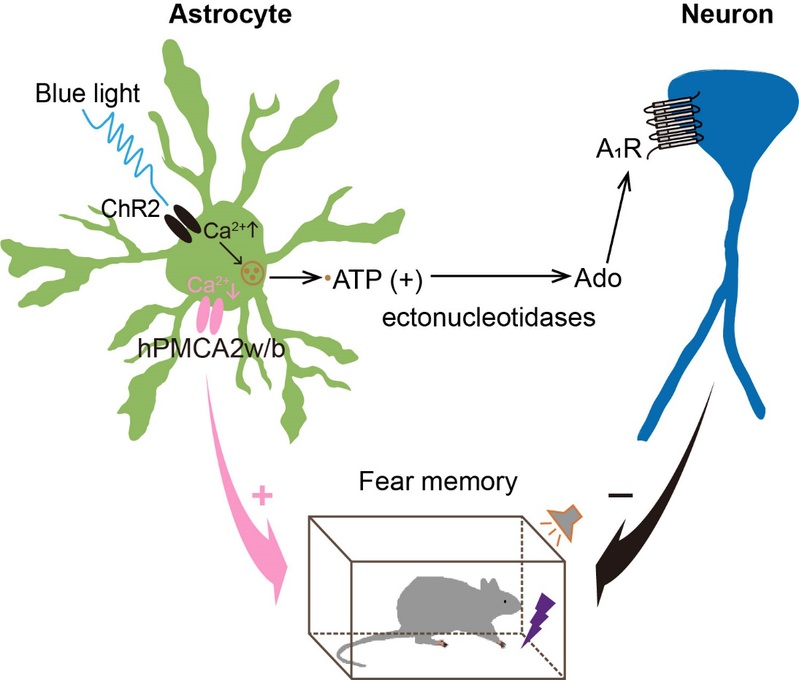The research team led by Prof. YU Yanqin and DUAN Shumin has recently published an article titled Activation of Astrocytes in Hippocampus Decreases Fear Memory through Adenosine A1 Receptors on eLife online (DOI: 10.7554/eLife.57155) on September 1. This research uncovered how astrocyte activity regulates contextual fear memory, the dysregulation of which leads to pathological fear-related disorders.
Astrocytes respond to and regulate neuronal activity, yet their role in mammalian behavior remains incompletely understood. Especially unclear is whether, and if so how, astrocyte activity regulates contextual fear memory, the dysregulation of which leads to pathological fear-related disorders. Researchers from the team generated GFAP-ChR2-EYFP rats to allow the specific activation of astrocytes in vivo by optogenetics. Researchers found that after memory acquisitionwithin a temporal window, astrocyte activation disrupted memory consolidation and persistently decreased contextual but not cued fear memory accompanied by reduced fear-related anxiety behavior. In vivo microdialysis experiments showed astrocyte photoactivation increased extracellular ATP and adenosine concentrations. Intracerebral blockade of adenosine A1 receptors (A1Rs) reversed the attenuation of fear memory. Furthermore, intracerebral or intraperitoneal injectionof A1R agonist mimicked the effects of astrocyte activation. Therefore,the findings provide a deeper understanding of the astrocyte-mediated regulation of fear memory, and suggest a new and important therapeutic strategy against pathological fear-related disorders.
Graduate students LI Yulan and li Lixuan from Zhejiang University School of Medicine are co-first authors of this article. Prof. YU Yanqin and DUAN Shumin from Zhejiang University School of Medicine are the corresponding authors.

